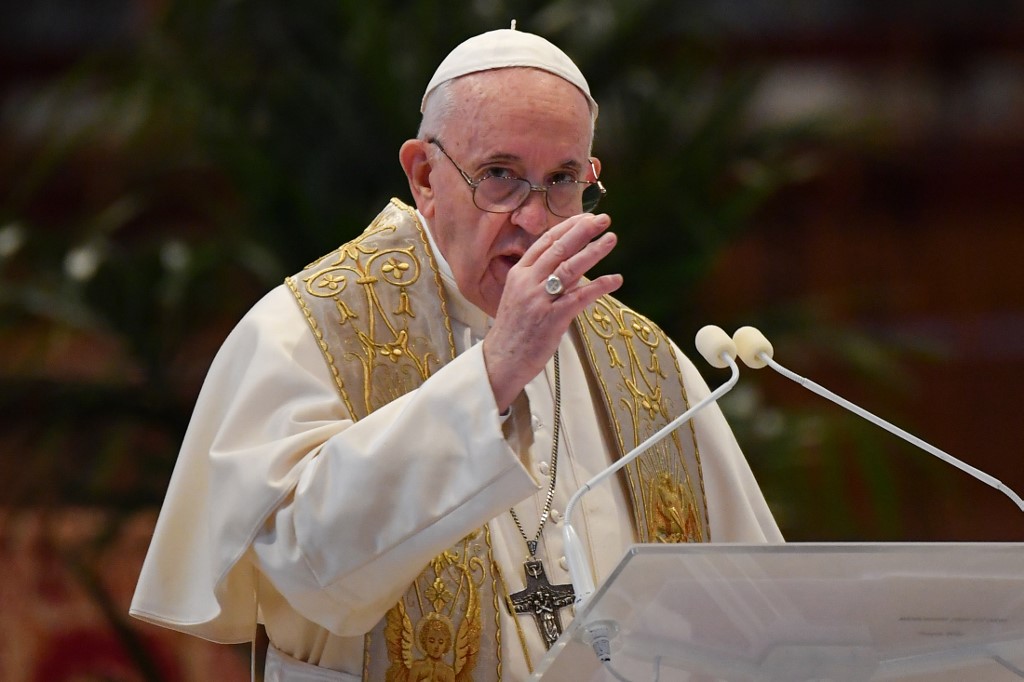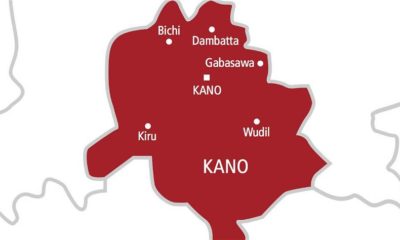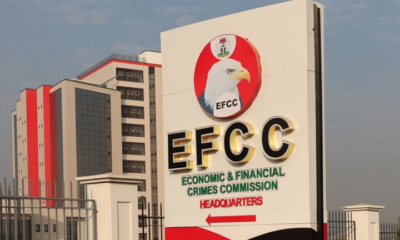International News
Former Albanian President, Meta Arrested For Corruption
In a dramatic development that has rocked Albanian politics, former President Ilir Meta was arrested on Monday for alleged corruption and money laundering, marking a new chapter in the ongoing political battle between Meta and his long-time rival, Prime Minister Edi Rama.
The arrest, confirmed by the country’s special prosecutor’s office, has drawn sharp criticism from Meta’s supporters and deepened tensions within Albania’s political landscape.
Read Also: How Bobrisky Detained, Interrogated By Immigration Officers At Seme Border
Meta, 55, who served as President from 2017 to 2022, was detained in Tirana after returning from a visit to Kosovo.
His arrest comes amid an ongoing investigation involving him, his ex-wife, Monika Kryemadhi, and other prominent figures on charges that include “passive bribery of a senior official,” “money laundering,” and “false declaration of assets.”
The allegations span over a decade, with some of the earliest accusations dating back to his tenure as Minister of Economy between 2010 and 2011.
Albanian media outlets published images showing police escorting Meta out of his vehicle and into a police van, while AFP photographers later captured him leaving a police station, en route to jail.
His ex-wife, Kryemadhi, a Member of Parliament and leader of the Freedom Party, has not been arrested but is required to appear regularly before judicial authorities.
Kryemadhi has publicly denounced the charges, describing them as “political” in nature.
“This is a criminal kidnapping,” said Tedi Blushi, the secretary-general of Meta’s Freedom Party, as he condemned the arrest.
Meta’s political allies view the move as part of a broader crackdown by Prime Minister Rama, who has been accused of consolidating power and targeting political rivals.
Former Prime Minister and opposition leader Sali Berisha, himself under investigation for corruption, called Meta’s arrest “political persecution” during a press conference on Monday.
The charges against Meta, if proven, could result in up to 12 years of imprisonment under Albanian law.
The investigation is ongoing, with authorities receiving international support from the United States, Austria, Italy, San Marino, and Cyprus.
Prosecutors hinted at the possibility of more individuals being implicated as they continue to scrutinize Meta’s alleged network of criminal activities.
Ilir Meta is a seasoned figure in Albanian politics, with a career that spans back to the country’s post-communist transition.
He was elected as a deputy in 1992 and went on to serve in a variety of top-level roles, including Prime Minister (1999-2002), Minister of Foreign Affairs (2009-2010), and Speaker of Parliament (2013-2017).
His presidency, though largely ceremonial, was marked by escalating tensions with Prime Minister Rama, particularly as Meta positioned himself as a fierce critic of the government, accusing Rama of creating a “kleptocratic regime.”
International News
Panic In Istanbul As 6.2-Magnitude Earthquake Hits Marmara Sea
Residents of Istanbul were jolted by a 6.2-magnitude earthquake on Wednesday, which struck the Marmara Sea near the city’s western fringes, prompting widespread concern but causing no immediate casualties.
The quake, which occurred at 12:49 p.m. local time (0949 GMT), originated in Silivri, according to Interior Minister Ali Yerlikaya.
“An earthquake of 6.2 magnitude occurred in Silivri, Marmara Sea, Istanbul,” he confirmed on X, formerly Twitter. Yerlikaya also noted that tremors were felt in nearby provinces.
READ ALSO: Massive 7.7 Magnitude Earthquake Rocks Myanmar, Shakes Southeast Asia
Following the initial tremor, Turkey’s disaster management authority, AFAD, reported three more earthquakes ranging from 4.4 to 4.9 in magnitude.
The seismic activity sent people fleeing onto the streets, with many seen anxiously checking their phones or making calls.
“I just felt earthquake, I’ve got to get out,” said a decorator who dashed out of a fourth-floor apartment near Galata Tower. He declined to give his name, visibly shaken by the experience.
Despite the intensity, there were no reports of injuries or building collapses in the city of approximately 16 million people.
“Until now, we have no information about any buildings collapsing,” the governor’s office stated, urging residents to avoid entering structures that may have sustained damage.
Reassuring citizens, the Istanbul municipality also confirmed, “No serious cases have been reported so far following the earthquake in Istanbul,” in a post on X.
Tremors from the quake were reportedly felt as far as Sofia, Bulgaria, according to AFP journalists in the capital.
Authorities continue to monitor the situation as aftershocks persist and damage assessments are conducted across the region.
International News
JUST IN: Vatican Discloses Cause Of Pope Francis’ Death

The Vatican has disclosed that Pope Francis died of a stroke, which caused a coma and irreversible heart failure, according to his official death certificate released on Monday.
The 88-year-old pontiff passed away on Monday morning, nearly a month after being discharged from hospital following treatment for double pneumonia.
In the statement released by the Holy See Press Office, the cause of death was identified as “a stroke, followed by coma and irreversible cardiocirculatory collapse.”
READ MORE: JUST IN: Vatican Mourns As Pope Francis Passes Away At 88
The certification was issued by Dr. Andrea Arcangeli, Director of the Directorate of Health and Hygiene of the Vatican City State.
The medical report also detailed the Pope’s history of health challenges, including “acute respiratory failure caused by multimicrobial bilateral pneumonia, multiple bronchiectases, high blood pressure, and Type II diabetes.”
His death was confirmed through electrocardiographic thanatography.
“I hereby declare,” wrote Dr. Arcangeli, “that the causes of death, to the best of my knowledge and judgment, are as stated above.”
Pope Francis, born Jorge Mario Bergoglio, became the 266th leader of the Roman Catholic Church in 2013 and was widely recognized for his efforts to modernize Church doctrine and promote global social justice.
International News
JUST IN: Vatican Mourns As Pope Francis Passes Away At 88
Pope Francis, the 266th pope of the Roman Catholic Church, has died at the age of 88, the Vatican announced on Monday.
His passing came just a day after he made an emotional appearance before thousands of faithful gathered at Saint Peter’s Square for Easter Sunday celebrations.
“It is with deep sorrow that I must announce the death of our Holy Father Francis,” Cardinal Kevin Farrell said in an official statement shared via the Vatican’s Telegram channel.
READ ALSO: Pope Francis To Return To Vatican After Month-Long Treatment
“This morning at 7:35 am (0535 GMT) the Bishop of Rome, Francis, returned to the home of the Father. His entire life was dedicated to the service of the Lord and His Church.”
The pontiff’s final public appearance, marked by visible frailty, came as a surprise to many, as he had only recently been discharged from the hospital following a prolonged battle with pneumonia. Francis had endured two life-threatening health scares earlier this year and spent 38 days hospitalized before being released on March 23.
Despite his condition, the pope greeted crowds on Easter Sunday with a heartfelt “Happy Easter” and delivered his traditional “Urbi et Orbi” blessing, using the occasion to call for global peace, freedom of thought, and tolerance.
Pope Francis, born Jorge Mario Bergoglio in Buenos Aires, Argentina, was the first pope from the Americas and the first Jesuit to assume the papacy.
His decade-long leadership was marked by a focus on compassion, humility, social justice, and outreach to marginalized communities.

















